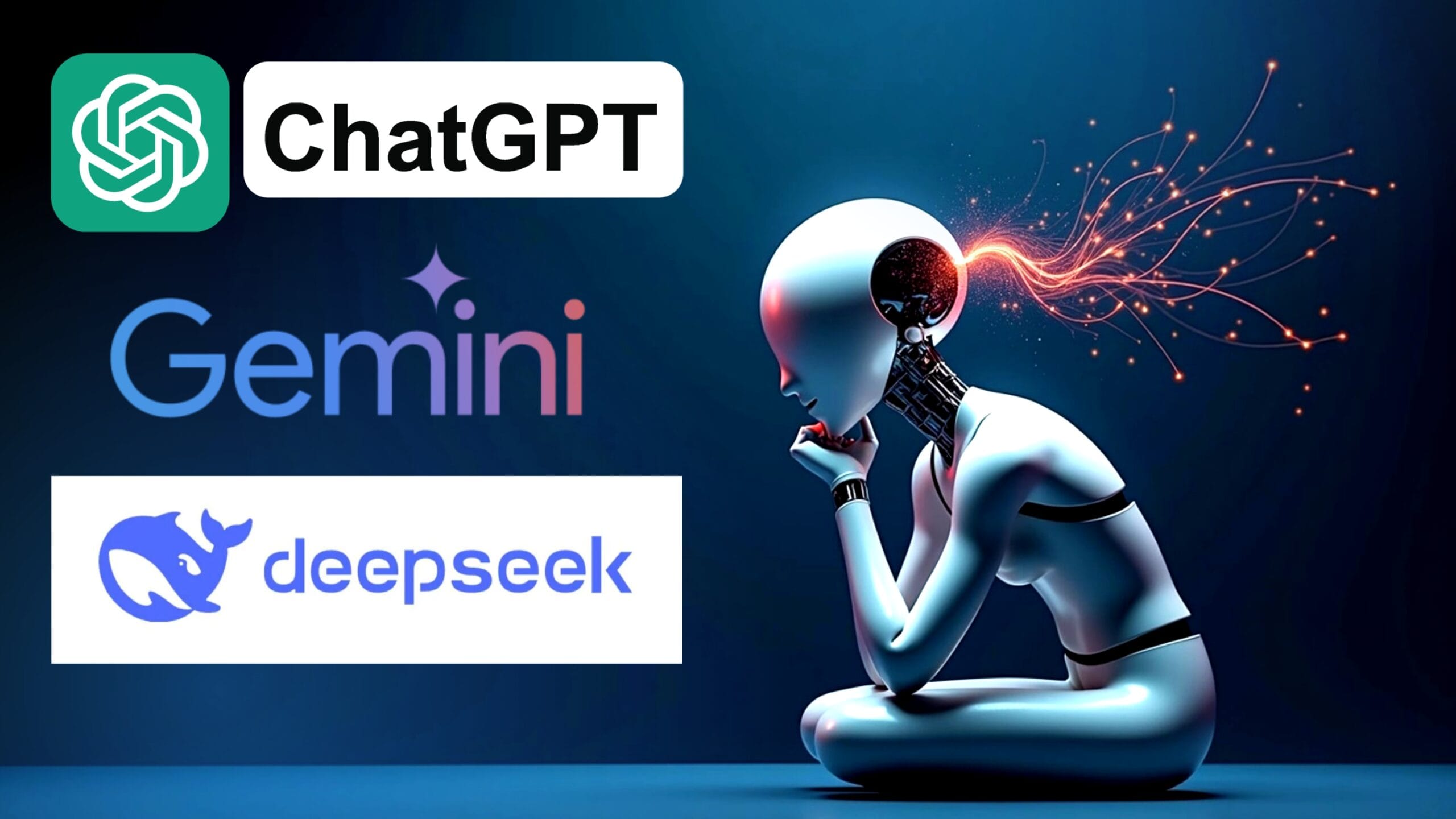
Introduction
AI changed our interface with technology, and large language models (LLMs) have recently emerged as a priority in AI research and development. OpenAI’s ChatGPT and Google’s Gemini have been dominant, and a new Chinese player, DeepSeek AI, is an emerging strong competitor. This blog aims to provide an analytical insight into DeepSeek AI covering its features, comparisons with ChatGPT and Gemini, and possible security threats tied to its data storage practices in China.
What is DeepSeek AI?
Deepseek AI is an advanced AI chatbot that has been developed by a Chinese technology company. It is designed to perform similar functions like ChatGPT and Gemini, including natural language processing, content generation, and interactive responses powered by AI. The model has garnered great attention because it is competitively cost-effective, yet very competent for various jobs in AI.
Key Features of DeepSeek AI
1. Advanced capabilities of AI: DeepSeek AI leverages state-of-the-art deep learning algorithms to generate human-like text, to solve complex problems, and to help with various tasks from writing and coding to customer support.
2. Cost-Effective Training: In contrast to the report that OpenAI charged hundreds of millions of dollars to train its models, DeepSeek AI claims it developed its models at a small fraction of that expense.
3. Open-Source Approach: Another chief feature of DeepSeek is that it allows developers to build upon the capacities of its models free of charge because it is open-source.
4. Multilingual Support: While focusing primarily on the Chinese market, DeepSeek AI supports multiple languages and is accessible to a broader audience.
5. Built for the Chinese Ecosystem: DeepSeek AI works seamlessly with platforms such as WeChat, Baidu, and Alibaba’s suite of services.
Also Read
Ethical Hacking Full Roadmap (AI Integrated) – 2026 Edition

GoBruteforcer Botnet: A New Cyber Threat Targeting Crypto & Blockchain Databases

Oracle’s Second Cybersecurity Breach: Legacy Credentials Stolen

The Rising Demand for Cybersecurity, Ethical Hacking & Bug Bounty

The Hidden Risks of Ghibli-Style AI Art: Privacy, Ethics, and Environmental Concerns

The Future of Video Creation: How Sora Could Change Everything
DeepSeek AI vs. ChatGPT vs. Gemini: A Detailed Comparison
| Feature | DeepSeek AI | ChatGPT (OpenAI) | Gemini (Google) |
|---|---|---|---|
| Accuracy | High, especially in logical reasoning | Very high, with continuous improvements | High, but still optimizing responses |
| Cost to Train | Estimated $6 million | Estimated $100+ million | Very high due to multimodal capabilities |
| Availability | Open-source | Proprietary | Proprietary |
| Language Support | Chinese-focused, expanding globally | Supports multiple languages | Multilingual with strong translation features |
| Security & Privacy | Data stored in China, potential government access | Data stored in US-based cloud servers | Google’s privacy policies in place |
| Censorship | Aligns with Chinese regulations | May avoid sensitive topics | Filters content based on Google’s policies |
| Integration | WeChat, Baidu, Alibaba | Microsoft products, Bing, APIs | Google Workspace, Android |
Security & Privacy Concerns with DeepSeek AI
DeepSeek AI appears to provide groundbreaking advancements in AI technology, while growing concerns have surfaced regarding item privacy and security issues. Various governmental and organizational undertakings are issuing warnings about the possible dangers posed by the way DeepSeek AI manages user data.
1. Data Security in China
DeepSeek AI stores all the user data on servers in China. Hence to share, unless repelled, the law in China requires firms to comply with its own requests for information. This means that any information DeepSeek AI processes can theoretically be accessed by Chinese authorities, which brings serious concerns to business, researchers, and any user regarding data privacy.
2. Government Surveillance
Due to strict internet regulations in China, any service providing AI inside the country is regulated by the government. Companies operating in China must comply with censorship rules and may even have to share information with the government. This represents a significant concern for businesses and individuals using DeepSeek AI-especially where confidentiality or sensitive tasks are concerned.
3. Censorship and Content Regulation
DeepSeek AI has been shown to censor topics in line with Chinese government policy. Topics like political freedom, human rights cases, and controversial historical moments, such as the Tiananmen Square protests, are either omitted or respond only with government-sanctioned narratives. This impacts the authority and neutrality of the information provided within the AI.
4. International Restrictions and Bans
Countries such as Australia, Canada, and South Korea have either restricted or outright banned DeepSeek AI’s use on government devices due to security risks. Various Western organizations have similarly advised their employees against using DeepSeek AI for business-related purposes over data privacy issues.
Conclusion: Should You Use DeepSeek AI?
DeepSeek AI is advancing in technology, an upstart AI model in the market that is cheaper and more powerful than products from the likes of Google and OpenAI. It is not one without considerable worries regarding security, first among them being where user data is stored and the enormous influence of the Chinese government in its operations.
In conclusion, ChatGPT and Gemini seem much safer and transparent as an alternate AI assistant because they comply with stricter data protection laws. Should you be in China or engaging in work that requires immersion into the Chinese ecosystem, you may very well want to consider DeepSeek AI for its native functionality to local platforms.
Final Recommendation
- Avoid DeepSeek AI if: You prioritize data privacy, data security concerns, and government surveillance.
Use DeepSeek AI if: You require an AI model that is cost-effective, open-source, and works well within the Chinese digital ecosystem.
While AI technology continually expands these days, it’s good practice for users to keep updated on which platform their data is stored, who indeed has access to that platform, and how their AI assistants process information. Always use AI tools that are secured and privacy-compliant for your intended use.
